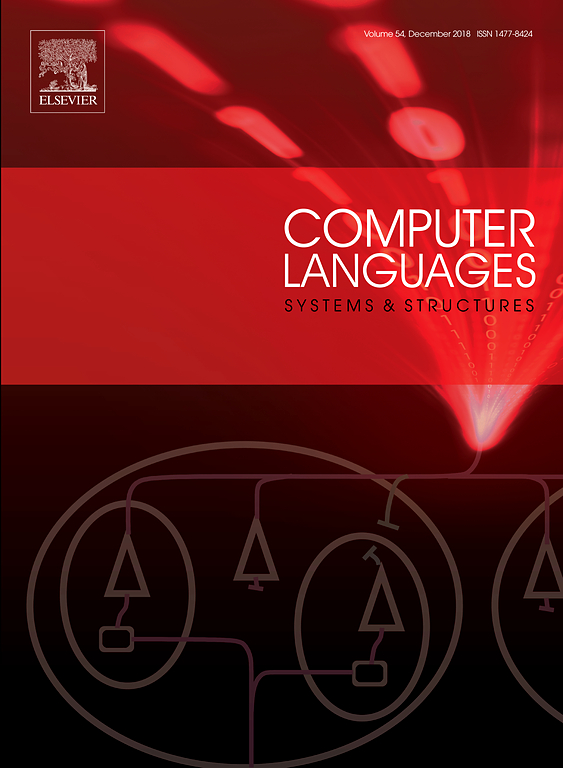“作家的伟大之处在于阐述人类永恒的问题和困境”
Q1 Computer Science
引用次数: 0
摘要
采访的重点是托马斯·曼,他的作品和他的作品的接收。斯坦尼斯瓦夫·巴拉查克(Stanisław Barańczak)围绕曼的《魔法山》(The Magic Mountain)展开的争论是文本的一个重要背景。采访中提到了一篇文章《一个非政治人物的反思》(尚未整体翻译成波兰语)。本文章由计算机程序翻译,如有差异,请以英文原文为准。
“The greatness of a writer consists in articulating the eternal problems and dilemmas of humanity”
The interview focuses on Thomas Mann, his oeuvre and the reception of his works. The dispute around Mann’s The Magic Mountain, started by Stanisław Barańczak, is an important context of the text. In the interview an essay Reflections of a Nonpolitical Man (yet untranslated into Polish as a whole) is mentioned.
求助全文
通过发布文献求助,成功后即可免费获取论文全文。
去求助
来源期刊

Computer Languages Systems & Structures
工程技术-计算机:软件工程
CiteScore
2.74
自引率
0.00%
发文量
0
审稿时长
>12 weeks
期刊介绍:
Following the merger of Computer Languages, Systems and Structures with the Journal of Visual Languages and Computing in 2018, we are excited to present the Journal of Computer Languages, a single publication which covers all areas of computer languages.
The Journal of Computer Languages (COLA) welcomes papers on all aspects of the design, implementation, and use of computer languages (specification, modelling, programming; textual or visual) and human-centric computing, from theory to practice. Most papers describe original technical research, but the journal also welcome empirical studies and survey articles.
Current research areas for the Journal of Computer Languages include:
-Block-based languages-
Cognitive, perceptive and motoric systems and models-
Compilers and interpreters-
Computational thinking-
Design and development of concurrent, distributed, parallel, quantum and sequential languages-
Domain-specific languages-
End-user development-
Generative approaches, meta-programming, meta-modelling-
Human aspects and psychology of designing languages-
Information visualization-
Interaction models and languages-
Location-based data and processes-
Language design and implementation-
Language-based security-
Language evolution, integration, composition, and coordination-
Language product lines-
Language workbenches, meta-languages and development frameworks-
Languages, models, and frameworks for visual analytics-
Languages for large-scale scientific computing-
Languages for software specification and verification-
Libraries, run-time environments and language ecosystems-
Modelling and programming languages-
Modularity and extensibility of language specifications and programming-
Parallel/distributed/neural computing and representations for visual information processing
[...]
 求助内容:
求助内容: 应助结果提醒方式:
应助结果提醒方式:


